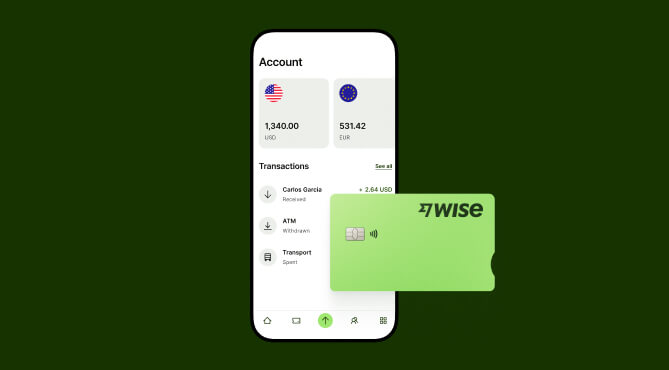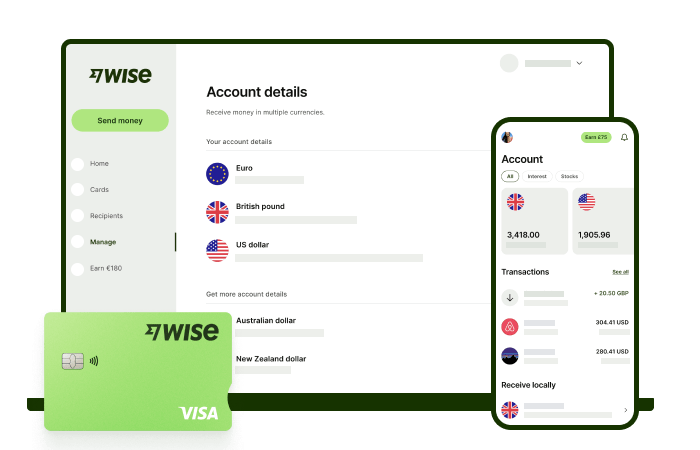Does MoneyGram work in China?
Is MoneyGram available in China? Yes! This article will explain how MoneyGram works in China and how you can send money from China.

China is seeing an ever-growing influx of foreign investors and companies. In major first-tier cities such as Beijing, Shanghai and Shenzhen, there are foreigners or Chinese expatriates from all over the world applying to register a foreign company almost every day. These recently established foreign-invested enterprises need to open bank accounts in China to carry out day-to-day business.
These days, though, opening a business bank account in China is very strict in terms of booking bank appointments and vetting information. So how do you open a business bank account in China as a foreigner? In this article we will go over the factors that need to be taken into account for an FIE to open a business account.
Since your business will definitely need several currency accounts to receive capital injections and withdraw funds, Wise is here to assist with its multi-currency account. You can receive, hold and convert 40+ currencies, including Chinese Yuan (RMB) and other primary currencies of the world global economy. Additionally, a foreign-invested enterprise you can use Wise to send RMB money out of China.
Yes, foreigners are legally permitted to open a bank account after establishing a company in China. It’s quite necessary and urgent. Why is a business bank account crucial to your company?
First of all, an FIE will need a RMB basic account to withdraw RMB cash and to pay tax in China.
Second, an FIE will need at least one foreign currency capital contribution account (approved by the State Administration of Foreign Exchange) to receive capital injections from the foreign investor, to settle foreign exchange, and for other purposes.
In China, corporate bank accounts are typically classified as the settlement account, foreign exchange account, deposit account, and loan account, each with unique characteristics and financial uses, and different service fees¹.
Here we take the Bank of China as an example to understand the general services of each account.
RMB settlement account
RMB bank settlement accounts of enterprises are divided into basic deposit accounts, general deposit accounts, special deposit accounts and temporary deposit accounts according to their purposes of daily use or special use².
Corporate foreign exchange account
This includes foreign exchange accounts opened and used for the purpose of conducting foreign exchange business with the Bank of China in freely convertible currencies, as well as some accounts in lesser-used currencies.
The Bank of China can open foreign exchange accounts in 36 foreign currencies, including the US dollar, the Euro, the Japanese yen, the Hong Kong dollar and the British pound sterling³.
Deposit account
This includes corporate demand deposits in RMB, corporate demand deposits in foreign currency, corporate term deposits in RMB, corporate term deposits in foreign currency, corporate notice deposits, agreement deposits in RMB, and certificates of corporate deposit¹.
Loan account
The Bank of China’s corporate financing service includes global credit line, syndicated Loan, export buyer's credit, export supplier's credit, electronic commercial draft discounting, etc⁴.

Foreign-invested enterprises wishing to open a bank account in China should complete an application form and provide any necessary documents. While the documents needed by different banks may vary slightly, the following documents are typically required by most banks:
How to open a business bank account in China?
How long does it usually take?
For enterprises that meet the conditions for opening a business account, a Chinese bank, e.g. Bank of China⁵, will generally complete the account opening audit and handle the procedures for opening an enterprise account within three working days. The business account can be used for fund collection and sending operations from the day it is formally opened.
How much to open a business account?
If you open a business account with the Bank of China, they charge up to RMB 300/account. There is also a general account maintenance fee -- up to RMB 50/account/month⁶.
Are there international banks that I can open a business account with?
Yes, Citibank, Hang Seng Bank, DBS Bank, HSBC, and some other international banks have branches in China. You may consult their local branches for opening a business account.
There are a wide range of Chinese banks that allow foreign-invested enterprises to open a business account. All banks have an extensive branch and ATM networks, so you can handle your banking business in most Chinese cities conveniently.
When picking one or two Chinese banks to open business accounts, it is wise to also think about which Chinese banks have branches abroad, and which ones have the most overseas branches. Below we list the top 5 leading banks in China, with the numbers of their overseas branches.
Which currency rates are applied by Chinese banks?
Like other banks in the world, Chinese banks also use their own set rate. However, you ought to be aware that there is a ‘real rate’ --the mid-market rate -- the middle point between a buy and a sell rate that is established by banks.
How long does it usually take?
With the Bank of China as an example. It takes 72 hours to complete the review of the document for a business account to apply for a cross-border remittance. Plus it'll take a few more days for the funds to arrive at the destination account.
What document do you need to take with you?
Generally, the documents required for a business account to make an international transfer include order contract, international tracking number, customs declaration, invoice, etc. You’ll need to look for exact information from the bank branch in your location.
What forms and any files do you need to fill out?
To make an international transfer, you’ll probably need to fill out the following forms and files:
What is the limit for each international transfer?
It depends on the bank and the branch you choose.

As you can see, the steps involved in opening a business account in China and making an international money transfer using a Chinese bank are not easy, rather time-consuming and money-consuming. Wise is a better alternative for foreign-invested enterprises in China. It is easy, fast and free to open a Wise account. And then with just a few simple steps through the in-app or the web version, you can receive and send money abroad.
Wise is constantly expanding its service footprint and serving more people globally.Over 16 million people, including business account users, use Wise to make international transfers to 160+ countries including China. More importantly, Wise go straight to the mid-market currency rate, meaning you can save more from each transaction.
Wise multi-currency account and Wise debit card are must-have financial tools for FIEs. You can hold 40+ currencies, including CNY, USD, GBP, EUR, AUD, CAD, etc., in your account, and use Wise debit card for daily transfers, payments, and settlements. Open your Wise account today, and seize any opportunity to invest and make money in China!
*This service is provided in partnership with a licensed third party payment provider in China.
Source:
*Please see terms of use and product availability for your region or visit Wise fees and pricing for the most up to date pricing and fee information.
This publication is provided for general information purposes and does not constitute legal, tax or other professional advice from Wise Payments Limited or its subsidiaries and its affiliates, and it is not intended as a substitute for obtaining advice from a financial advisor or any other professional.
We make no representations, warranties or guarantees, whether expressed or implied, that the content in the publication is accurate, complete or up to date.

Is MoneyGram available in China? Yes! This article will explain how MoneyGram works in China and how you can send money from China.

Check what is Panda Remit, is it safe? Learn its fees and limits to choice of currencies. Get to know Wise, a good alternative for sending money from China!

What is the Alipay transaction limit to send and receive money? Is there a limit for foreigners using Alipay? How to increase Alipay maximum? Check out the answ

Explore JP Morgan Chase Bank locations in China, and the step guide on how to use it to transfer money out of China, along with fees and limits.

Can you transfer Money from Alipay to PayPal? Yes, but very complicated. Here’s an easy and fast way to transfer money from Alipay to PayPal, and send money out

Is Alipay free to use? How much does Alipay charge in fees for a foreign credit card to make purchases and transactions? Read on to find the answers.